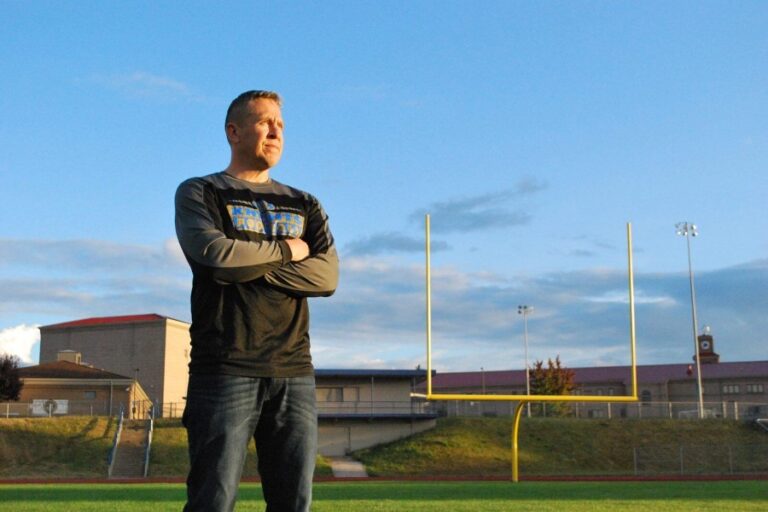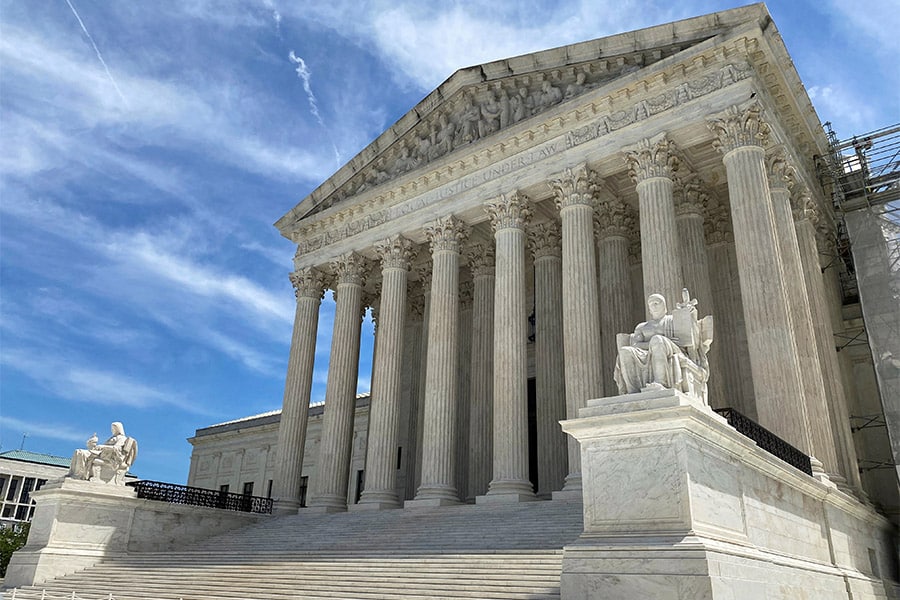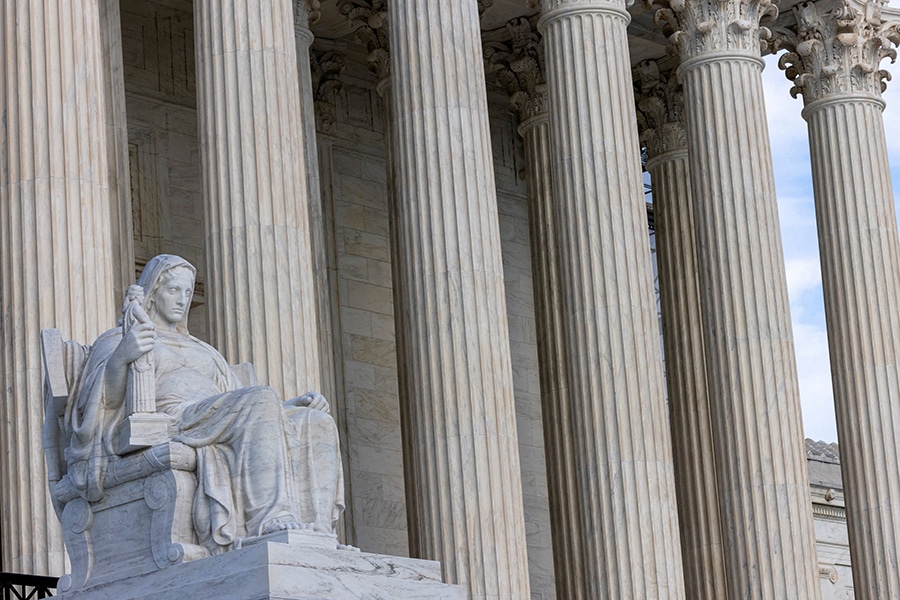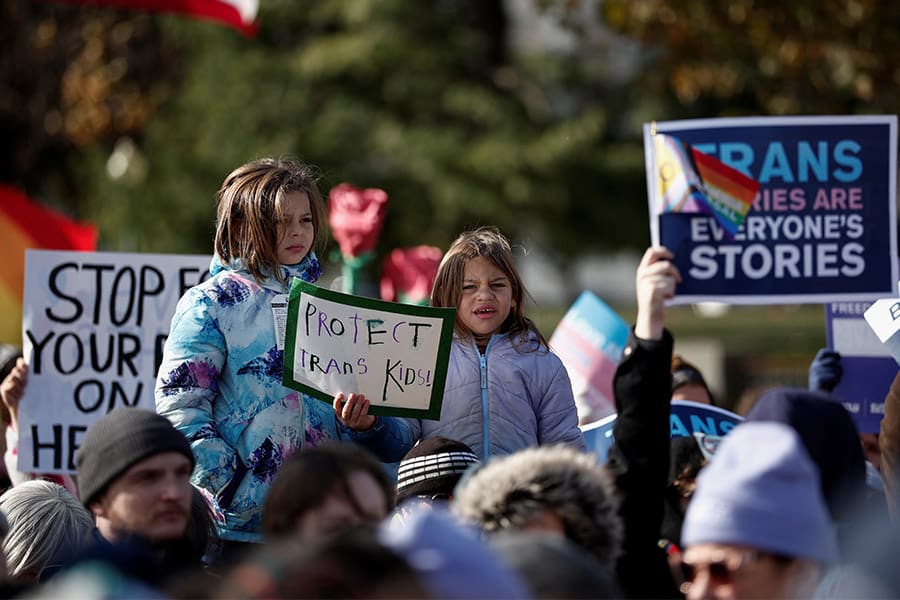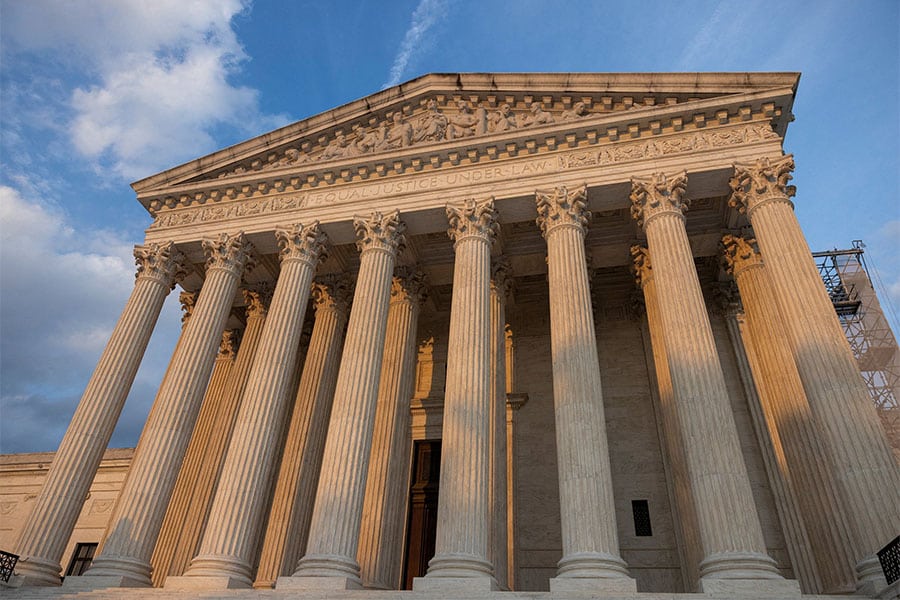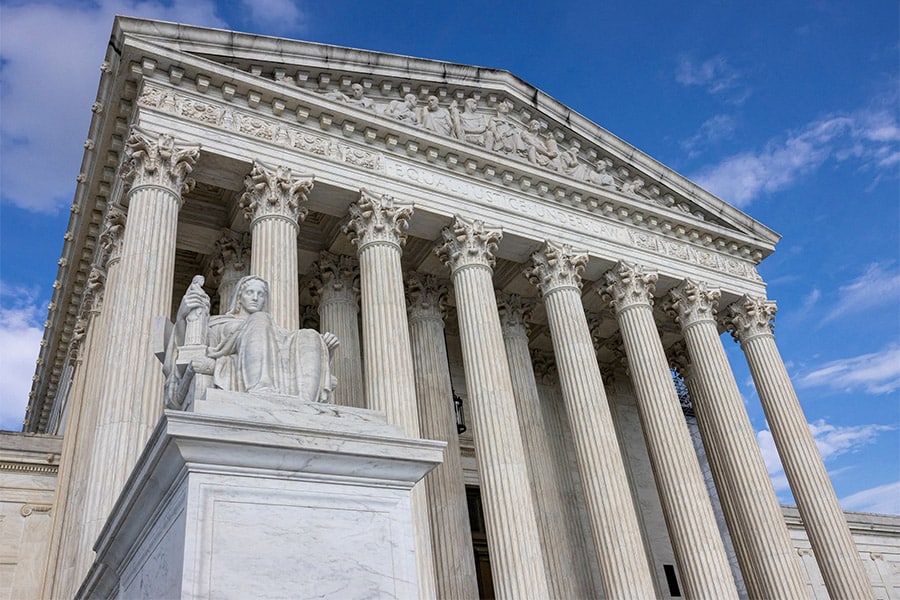WASHINGTON (CNS) — In a 6-3 vote June 27, the Supreme Court ruled that a former high school football coach had the right to pray on the football field after games because his prayers were private speech and did not represent the public school’s endorsement of religion.
“The Constitution and the best of our traditions counsel mutual respect and tolerance, not censorship and suppression, for religious and nonreligious views alike,” said the court’s majority opinion, written by Justice Neil Gorsuch.
Justices Stephen Breyer, Sonia Sotomayor and Elena Kagan dissented.
The court’s majority opinion also emphasized that “respect for religious expressions is indispensable to life in a free and diverse republic — whether those expressions take place in a sanctuary or on a field.”
It said the case focused on a government entity seeking to “punish an individual for engaging in a brief, quiet, personal religious observance doubly protected by the free exercise and free speech clauses of the First Amendment” and that the “Constitution neither mandates nor tolerates that kind of discrimination.”
Joseph Kennedy, former assistant coach at Bremerton High School, outside of Seattle, said his postgame prayers on the field cost him his job.
The coach had been told by school district officials to stop saying these prayers on the 50-yard line, and he refused. When his contract was not renewed, he sued the school for violating his First Amendment rights.
During oral arguments in late April, several justices emphasized that private speech is still private, and protected by the First Amendment, even if it takes place on public grounds.
But others pointed out that this private prayer on the field also could seem coercive because players could feel like they should participate.
An attorney for the school district argued that the coach’s prayers violated the Constitution’s establishment clause, which is often cited to prohibit prayer in public schools, but the court’s majority didn’t see that way.
They said the coach’s actions “did not come close to crossing any line one might imagine separating protected private expression from impermissible government coercion.”
New York Cardinal Timothy M. Dolan, chairman of the U.S. Conference of Catholic Bishops’ Committee for Religious Liberty, said the court’s decision “to prevent the forced expulsion of voluntary prayer from public life is a major victory.”
His reaction was issued in a June 27 news release by Becket, a religious liberty law firm, which filed an amicus brief in this case on behalf of the USCCB.
The court’s ruling, coming at the end of the term, did not follow its previous reliance on its 1971 decision in Lemon v. Kurtzman, often called the “Lemon test” used to determine if a law violates the First Amendment:
The test has three elements: The law must have a secular purpose, can neither advance nor inhibit religion, and must not foster excessive entanglement between church and state.
The dissenting justices found fault with the majority not using the test, saying the move “rejects long-standing concerns surrounding government endorsement of religion.”
“Official-led prayer strikes at the core of our constitutional protections for the religious liberty of students and their parents,” Sotomayor wrote in her dissent, joined by Breyer and Kagan.
“This decision does a disservice to schools and the young citizens they serve, as well as to our nation’s long-standing commitment to the separation of church and state,” she added.
She also pointed out that the Supreme Court “consistently has recognized that school officials leading prayer is constitutionally impermissible.”
Kelly Shackelford, president, CEO and chief counsel for First Liberty Institute, the Texas law firm that represented Kennedy, called the ruling a “tremendous victory for Coach Kennedy and religious liberty for all Americans.”
Paul Clement, former U.S. solicitor general, who argued Kennedy’s case, said: “After seven long years, Coach Kennedy can finally return to the place he belongs — coaching football and quietly praying by himself after the game.”
But him “quietly praying” does not accurately describe the coach’s postgame prayers, according to Sotomayor.
She wrote in her dissent: “To the degree the court portrays petitioner Joseph Kennedy’s prayers as private and quiet, it misconstrues the facts. The record reveals that Kennedy had a long-standing practice of conducting demonstrative prayers on the 50-yard line of the football field.”
She said he also consistently invited others to join him and for years led student athletes in prayer at the same time and location, details which she said the court ignored.
For Richard Garnett, Notre Dame professor of law and director of the Notre Dame Program on Church, State and Society, the ruling affirmed that public employees do not lose their right to religious expression in the public square.
He said a key feature in the decision was that the court “finally made clear and explicit the fact that the so-called Lemon test is, and has long been, abandoned. No longer are courts and litigators required to engage in abstract speculations about the possibility that official actions might cause hypothetical observers to perceive ‘endorsements’ of religion.”
Garnett, who filed an amicus brief in this case, said the court’s ruling “will provide much needed clarity and consistency to an area of law that has been notoriously confused and inconsistent.”
Becket’s brief had asked the court to strike the Lemon test and said this opinion did just that by confirming “Lemon has long been dead and that the Establishment Clause is understood through America’s history and tradition of religious pluralism.”
Or as William Haun, senior counsel at Becket, put it: “Scrubbing religious expression from the public square, based on nothing more than offense, is as unnatural as it is unconstitutional.”
This case was the fourth religious rights case for the court this term. It also allowed spiritual advisers to pray with death-row inmates during executions; said a Christian group was discriminated for not being allowed to fly its flag in a Boston plaza; and ruled parents in Maine could use public tuition grants to send their children to religious schools.
Also see
Copyright © 2022 Catholic News Service/U.S. Conference of Catholic Bishops

